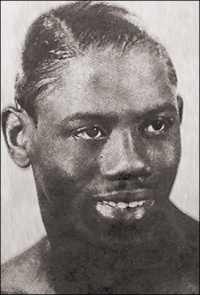Kid Chocolate

His real name was Eligio Sardiñias-Montalbo, but he was known as “Kid Chocolate.” He wasn’t a big guy, standing at just over 5-and-a-half feet, but his fists were lightning-fast, and his feet could dance like he was from Havana. He had a movie-star smile, and a high profile career in the late 1920s and early 1930s, holding world titles in the lightweight and welterweight divisions.
As an amateur, Kid Chocolate had 100 fights and won them all, 86 by knockouts. His professional debut came on December 8 1927, and he won 21 bouts before he moved to New York.
On July 15 1931, he became Cuba’s first world champion by defeating Jr. Lightweight champion Benny Bass in New York.
When his career in boxing ran out, Kid Chocolate returned to Havana, where he worked as a boxing trainer.
After the triumph of the Cuban rebels in 1959, Kid Chocolate stayed in Cuba. Today, a boxing stadium in Havana bears his name, and many still consider him the best Cuban fighter ever.
Kid Chocolate died in Havana on Aug 8 1988. His final record was 135 wins, 9 losses and 6 draws. Over 50 of his wins were by knockouts.
--
Such are the stories I’ve encountered while researching a boxing story for historyofcuba.com.
--
Did you know that since 1972 Cuban boxers have won 64 of the last 152 gold medals issued in World Amateur Boxing competitions for men?
Did you know that two Cuban boxers have each won 3 straight Gold medals in boxing at the Olympic Games in the heavyweight division? Their names are Teofilio Stevenson (1972, 1976 and 1980) and Felix Savon (1992, 1996 and 2000).
Peace
